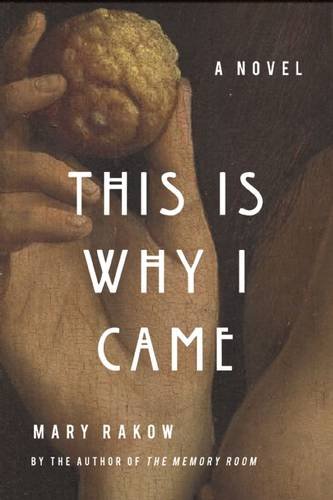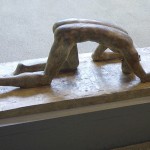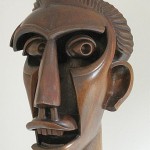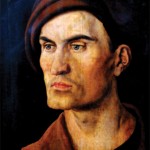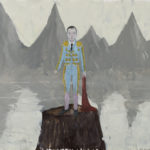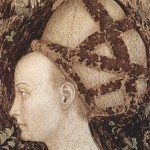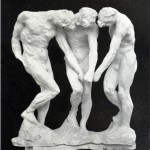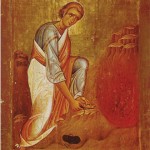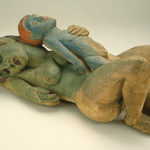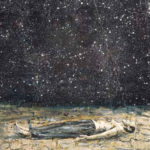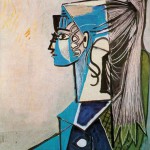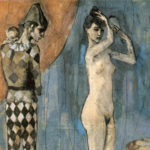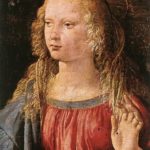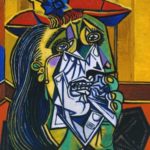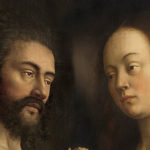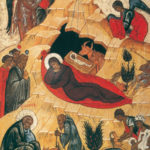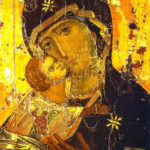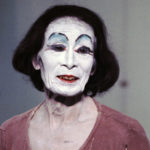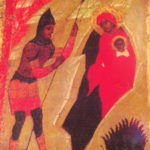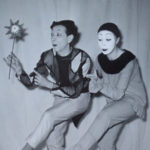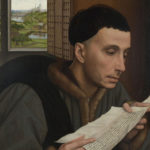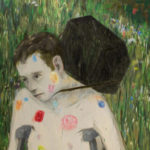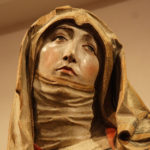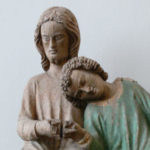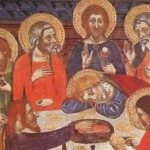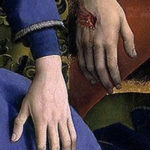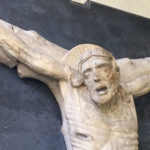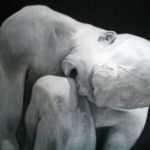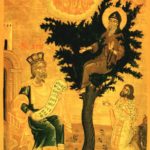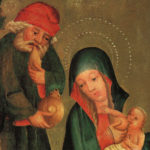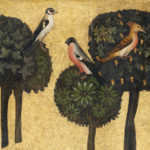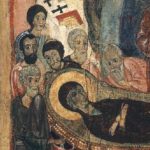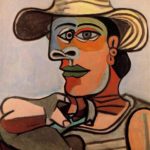Trash cans kicked over, a door slammed, screaming. Then another voice, one she recognized. The woman with twins. Mary lit the candle, opened the door. A third scream from the butcher’s house. Soldiers on horseback. Blood in the street. Lamps coming on all down the block. Screams from the house behind. The slap of leather on flesh. Shadows of horses running across the sides of the houses. And then they were gone. Like horses of the apocalypse, Mary thought.
In daylight all was still. Men and women and children, as if frozen, stared at the street. No blood on the lintels. None on the doors. It wasn’t the angel of death. They were soldiers with blankets under their saddles and shields. No one spoke. No one ate. No one moved into action. For days blood lay unanswered in the street.
In almost every house, a dead child and a living one. And all the dead children were boys. All of them young. Older brothers and sisters sleepwalking, dazed, one boy laughed uncontrollably, holding his pet mouse, stroking it.
A week later she woke in a pool of blood. It was true, then, she had been with child. Glistening and motionless, she held it in the palm of her hand. It would have been a brother.
It was weeks, when a skin of normalcy returned, that the smart girl did the calculations. Only boys were murdered and only those two years old or younger. The age Jesus had been. By rumor and calculation, pieces were assembled. The order had come down from Herod himself.
“It wasn’t our fault,” Joseph repeated.
“But our son was saved and none of the others his age. We were lucky. You had that dream.”
Joseph tried to be patient but she’d spoken this way for months, demanding that he console her, demanding that he say again, “It had nothing to do with us.” But it didn’t help. She would say, “It’s because of us,” whenever the temperature dropped and the air felt like that night’s air. Or the jasmine smelled outside the window as it had that night. Or the stars aligned in the same way.
The families who lost one son and those who lost two threw rocks at their door. At the well, women locked arms forming a barricade so that she fetched water at noon in the sweltering sun when no one was there.
Their outrage did not fade. “We saw our sons murdered and you miscarried!” the women taunted her. “We’ve all miscarried plenty!” In this the older women chimed in, even the grandmothers, drawing on memory.
Some days Mary wanted neither marriage nor motherhood. Thought, if this is holiness, I don’t want any part of it. Unable to feel compassion, unable to forgive, she called out to Joseph, “I don’t want to be here anymore!” and Joseph thought, I have nothing left to give you.
“Why didn’t you warn us?” the men boycotted his workshop, no customers came so there was, suddenly, no income, just what was left of the gold.
It changed nothing. She wanted to feel innocent and could not.
Shunned in public, forbidden to attend the funerals of the slain, Joseph took his goods to other villages where he was not known, but his business did not grow. He found work making small repairs, a stuck drawer, a weakened table leg, a broken gate.
From the cabinet behind the stove she took some of the gold and traveled to Jerusalem where she bought a costly garment. She put it on and stood in front of the mirror. It changed nothing. She wanted to feel innocent and could not.
There would be no more pregnancies. She and Joseph felt unable to be sexual, unable to risk more unhappiness, unable to find in the body of the other either pleasure or solace. The table he built lay almost empty and more children would not come. Over the years he would take the leaves and chop them to kindling.
By MT (Template:Film camera) [CC BY 3.0], via Wikimedia Commons. Cropped from original.

